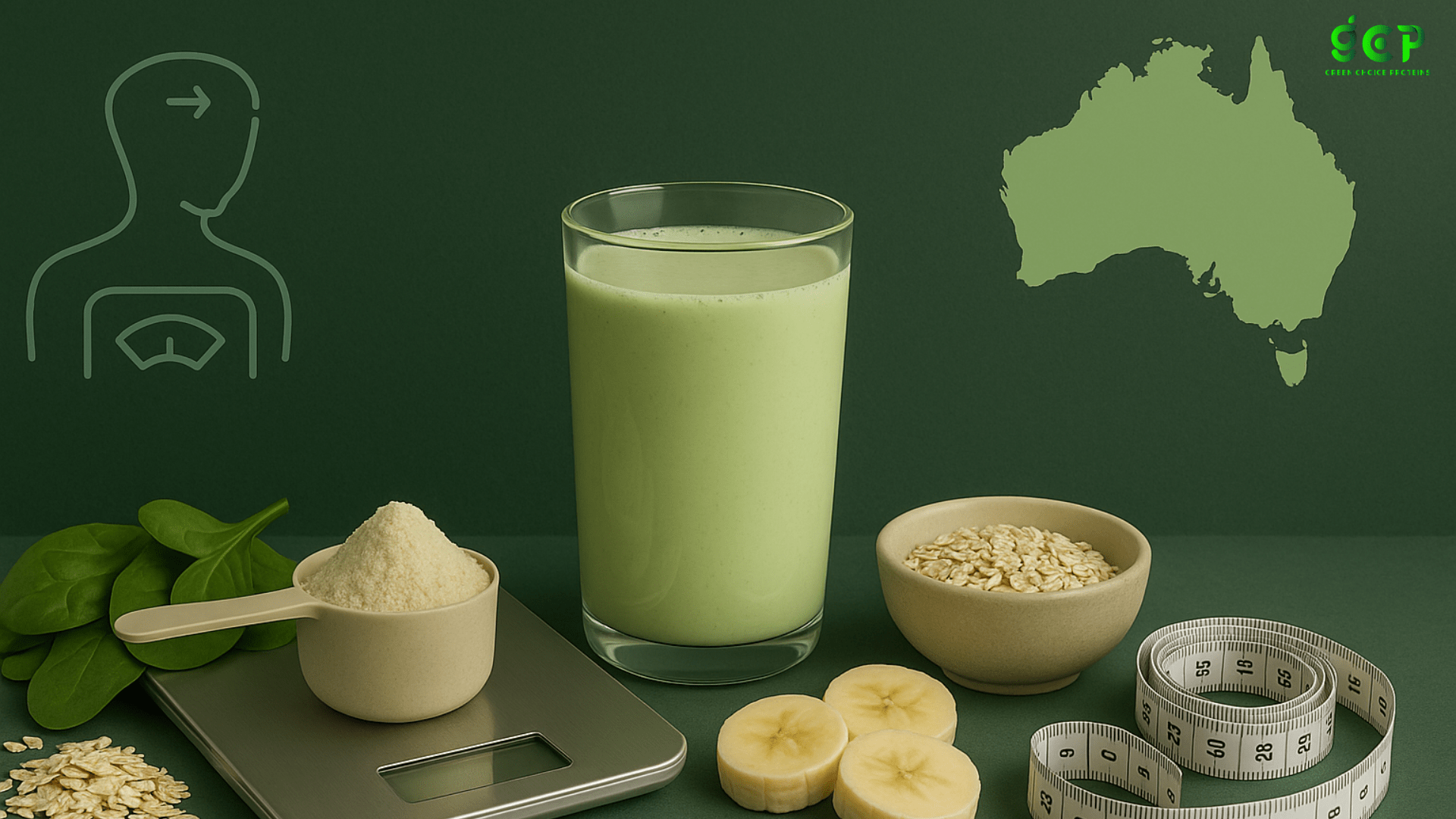

In Australia’s fast-growing health and fitness landscape, consumers are becoming more intentional about what they consume, especially when it comes to supplements. As plant-based lifestyles and sustainable choices become mainstream, Australians are exploring alternatives to traditional protein powders. Among them, Pea Plant Protein Powder has emerged as a clean, effective, and gut-friendly contender—challenging the long-held dominance of whey in gyms, kitchens, and wellness circles.
Whey protein has long been the go-to supplement for athletes, bodybuilders, and fitness beginners due to its high protein content and quick absorption. However, many are now experiencing and acknowledging its downsides—digestive discomfort, bloating, acne, and reliance on dairy. Enter pea plant protein powder—a nutrient-dense, hypoallergenic, and easily digestible protein source made from yellow split peas. Brands like Green Choice Proteins (GCP) have taken the lead in offering Australian consumers high-quality, locally sourced pea protein blends that rival whey in performance, without the unwanted side effects.

Pea plant protein powder is made by isolating the protein content from yellow split peas through a clean, water-based extraction process. This legume is naturally high in protein, iron, fiber, and other micronutrients, making it a functional whole-food source. The result is a concentrated, plant-based protein powder that contains around 20–25 grams of protein per serve and is rich in muscle-supportive branched-chain amino acids (BCAAs).
Pea protein is not just a vegan alternative—it’s a performance-driven supplement that fuels lean muscle growth, supports recovery, and contributes to satiety. When formulated properly, like GCP’s Australian-grown version, it becomes a complete protein—either through its natural composition or when combined with other complementary plant proteins like rice or chickpea. Its neutral taste and smooth texture make it versatile and enjoyable across a range of recipes and fitness goals.
Whey protein is derived from cow’s milk during the cheese-making process. It is separated from the curds and then dried to form a powder. Whey contains a high concentration of essential amino acids and is known for its rapid absorption, making it a staple post-workout protein option. It is particularly high in leucine, an amino acid that plays a key role in stimulating muscle protein synthesis.
However, being a byproduct of dairy, whey comes with potential downsides. Many Australians experience lactose intolerance or dairy sensitivity, leading to digestive issues like bloating, cramps, and skin inflammation when consuming whey protein. Additionally, whey powders often contain artificial sweeteners, flavors, thickeners, and preservatives, which can be harsh on the gut and overall health when consumed regularly.

On a per-serve basis, both whey and pea plant protein powder deliver comparable amounts of protein—typically 20 to 25 grams per scoop. Whey does have a slightly higher leucine content, which may give it a small edge in triggering muscle protein synthesis faster. However, pea protein is rich in lysine, arginine, and iron—nutrients that support blood flow, endurance, and recovery.
Brands like GCP go a step further by combining pea protein with other Australian-grown legumes, creating a synergistic blend that matches or exceeds the amino acid completeness of whey. These carefully curated blends provide balanced nutritional support for muscle growth, repair, and immune function.
Whey protein, especially the concentrate form, contains lactose and can cause gas, bloating, and upset stomachs for individuals who are lactose intolerant or sensitive to dairy. Even whey isolate, while lower in lactose, is often processed with chemical additives and artificial sweeteners that can irritate the digestive tract.
In contrast, pea plant protein powder is naturally lactose-free, gluten-free, soy-free, and low in allergens, making it ideal for people with sensitive digestive systems. GCP’s formula is also free from artificial gums, fillers, and preservatives, offering a clean, smooth, and easily digestible protein that supports gut health long-term.
Pea protein is not just about protein—it also delivers iron, magnesium, potassium, and fiber, which support oxygen transport, bone health, and metabolic function. These micronutrients are crucial for people following plant-based or low-meat diets, as they may struggle to meet daily iron or magnesium requirements.
Whey, while effective in muscle growth, lacks this broader nutrient spectrum unless it’s fortified. If you’re seeking a protein powder that offers holistic wellness support, pea protein delivers more functional benefits than just building muscle.

Whey is often favored for its smooth texture and sweet taste, particularly when flavored with artificial ingredients. It mixes well in cold liquids and tends to be slightly creamier due to its dairy origin. However, many whey powders contain sucralose, aspartame, or stevia derivatives, which can leave a bitter or artificial aftertaste.
Historically, pea protein has had a reputation for being gritty or earthy, but modern formulations—especially those by GCP—have transformed that perception. By using high-quality peas and natural vanilla or cocoa flavoring, GCP delivers a smooth, mildly sweet protein powder that blends easily and tastes great in both smoothies and baking. It’s an excellent option for those who prefer natural taste profiles and avoid artificial ingredients.
Producing whey protein involves dairy farming, which contributes to methane emissions, water usage, and feed production. Australia, while having high animal welfare standards, still faces the climate impact of its livestock industry. Dairy production consumes more land and water and generates more greenhouse gases compared to growing legumes like peas.
Peas are nitrogen-fixing crops, meaning they naturally enrich the soil, reduce the need for chemical fertilizers, and support regenerative agriculture. They require less water, land, and energy to produce and have a far smaller environmental footprint than animal-based proteins.
By sourcing from local Australian farms, GCP supports regional agriculture, reduces emissions from imports, and ensures transparency from paddock to protein scoop. If environmental impact is part of your purchasing decision, pea plant protein powder is hands-down the more eco-conscious choice.

Both pea and whey proteins have merits. Whey is fast-digesting and leucine-rich, making it effective for muscle growth. But for many Australians, its drawbacks—digestive distress, artificial additives, and ethical/environmental concerns—make it less appealing.
Pea plant protein powder, especially when sourced and blended locally as with Green Choice Proteins, provides a clean, complete, and sustainable protein source. It’s suitable for a wider audience—vegans, vegetarians, those with intolerances, and environmentally conscious consumers—and delivers excellent results for muscle growth, recovery, and overall wellness.
If you’re seeking a protein that performs just as well as whey but aligns better with modern health values, GCP’s pea protein is the optimal choice.
Yes. When combined properly (like GCP does), pea protein delivers all essential amino acids and supports muscle protein synthesis similarly to whey.
Absolutely. Pea protein is completely dairy-free and perfect for anyone with lactose intolerance or dairy allergies.
No. In fact, it’s easier on the digestive system than whey and less likely to cause bloating, gas, or stomach upset.
Yes. It promotes satiety, helps manage appetite, and supports lean muscle maintenance, which are all essential for sustainable fat loss.
Yes! GCP’s pea protein is safe for daily use, whether in shakes, meals, or baking. It can be consumed once or twice a day depending on your goals.
In the showdown between pea plant protein powder vs. whey, the better option ultimately comes down to what matters most to you—digestive comfort, nutritional diversity, sustainability, or simplicity. For Australians looking for a cleaner, greener, and just-as-powerful protein, the answer is clear.
Green Choice Proteins brings together the power of Australian-grown peas with expert formulation to create a protein powder that supports your fitness journey, nourishes your body, and protects the planet. Say goodbye to compromise—and fuel your life the smart, sustainable way.
Join our mailing list and be the first to know about exclusive offers, new product launches, nutrition tips, and more! Elevate your plant-based journey with expert insights and special deals straight to your inbox.
Sign up today and fuel your health the Green Choice way! 💚


Where plant-based nutrition meets unparalleled quality! Fuel your health and fitness journey with our premium plant protein, crafted from the finest Australian-grown ingredients. Clean, delicious and packed with nutrition—because you deserve the best!